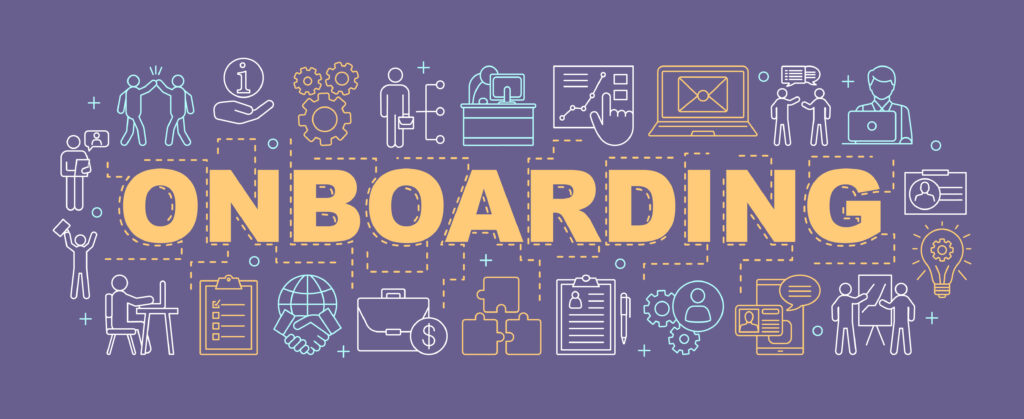You’ve been offered a new role with a new company – Congratulations!
There are a few things to do now. First, celebrate and inform your current employer of your resignation.
Secondly, is to think about how you’re going to make a success of your new role.
You know you have the right skills, abilities and experience that your new employer is looking for, so you can relax on that front.
But still, starting a new job can be daunting. You want to prove to your manager and your new colleagues that you’ve got what it takes.
Thankfully, there are a few strategies you can implement from day one.
So here are 7 strategies for creating success in your new role.
1. Knowing Where to Focus Your Efforts
Securing your new role is just the first step in this exciting new part of your career.
Although your recruiting partner will have helped you find a role which perfectly matches your skills, abilities and aspirations, it is not up to you to find out what is expected of you in your new role.
Things to think about:
-
Find out what your manager’s priorities are – and then find out how this relates to you. This might be covered in the onboarding process, but it will help to have defined short, medium and long-term goals to work towards.
-
What do you need to do every day in your day-to-day duties?
-
What is your manager’s style, and how are you going to develop a relationship with them?
-
What are your KPIs, and how will you be evaluated in your new role?
The more you can find out about where you fit into the business’ ultimate goals, the faster you will settle in and can start achieving success.
2. Demonstrating the Right Skills and Attitude
You will have been hired for your skills, and it’s time to put them to good use in your new role.
Think about is there anything you learned in your previous role that you could bring to your new organization?
You must also demonstrate that you can work well with your new colleagues – and this might mean navigating a few different working styles and figuring out how your new team works and how they communicate.
The key things to remember here are:
-
Practice your communication skills and be patient with others – it takes time to form strong working relationships.
-
Be flexible – you might have a fixed opinion from your previous roles about how to undertake specific tasks, but now is the time to observe others and fit in with how your new team operates.
-
Be pro-active in problems solving – don’t be afraid to take on new challenges in your new role; it shows you are resilient and hard working.
3. Forming Good Habits
It is essential that you maintain professionalism in everything you do, and avoid getting into workplace gossip, even though it might seem like a good way to form initial bonds.
Focus on your results in the early stages of your role; don’t be afraid to ask your manager to clarify that you’re on the right path, but refrain from asking continually about things you aren’t sure of. Save up your questions and ask once a day. If you aren’t sure of what to do at any point, be proactive and find something to do – ask your new colleagues if they need help.
4. Active Listening
Active listening is different from the type of listening that most people demonstrate – that is, listening with the intent of responding, and not listening deeply to what it is the other person is saying.
You can learn a lot more when you focus intently on the things your new colleagues and manager say to you. You can absorb so much about the company, the people, your role and the industry when you actively listen.
So, never make assumptions – and actively listen to your peers; you might be surprised at how much you learn.
5. Always Learning
We can all be guilty of believing that we have nothing left to learn about a particular subject, especially if it’s an issue that you are very familiar with.
But the start of a new role should be a reminder than there is always more to learn.
Once you have your new role parameters and goals clearly in your mind, you can then look towards your ongoing development.
Speak to your manager about L&D and ask if there are any courses you can take or any in-house training extra to your onboarding that you can partake in.
Remember – every day is a school day!
6. Deciding What to ‘Let Go’ Of
Part of growing in your new role is in realizing what you can let go of.
Success is not always about refining your skills and developing new ones; it can also be an opportunity to let go of old habits and mindsets that could be holding you back.
Learn when to say ‘no’; notice when you are more likely to procrastinate or become distracted, and finally, say goodbye to the fear of failure.
Starting a new role is a powerful thing, and it can be the opportunity to be the ‘you’ you have always wanted to be.
7. 30, 60 and 90 Day Plans
And lastly, success will not happen on its own – is must be planned for.
The onboarding process in your new role should set the objectives of your position; however, the detail and specificity of onboarding programs can vary between organizations.
So, it’s advised that you set yourself some 30, 60 and 90-day goals – even if they are just personal goals that you want to achieve in your new Role.
Achieving personal targets related to your new Role is a great way to boost your confidence and draw success towards you.
30, 60 and 90-plan have been proven time and again to be a really effective way of helping people achieve their goals.
Finally
Are you just about to embark on the excitement of a new Role? Or perhaps you’re looking for your next opportunity and aren’t sure where to start your new job search.
If so, we can help.
We help candidates just like you find great new career opportunities. From resume help, and interview prep to career advice and organizing interviews for you. Get in touch with us at 919-813-2454 or at Info@TheBlackDiamondAgency.com.







